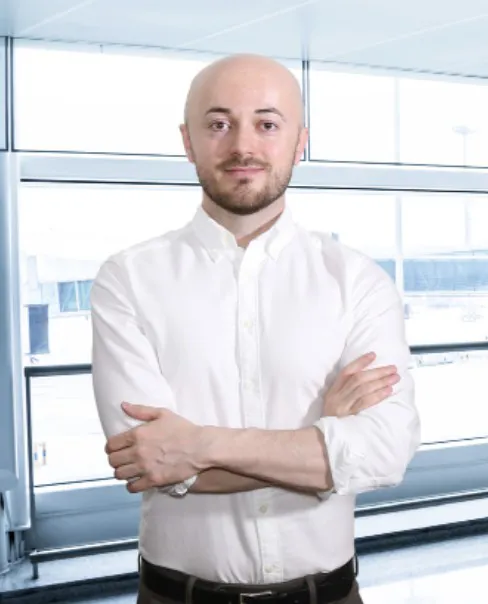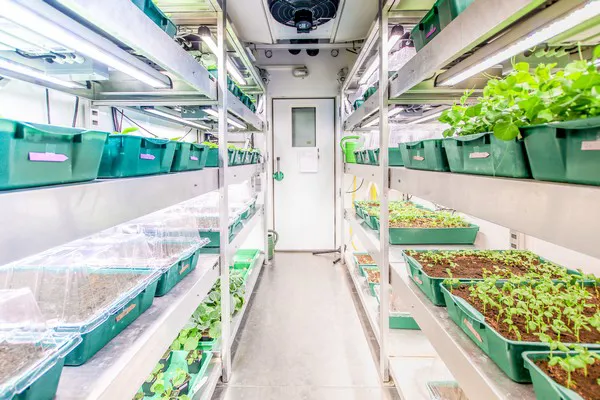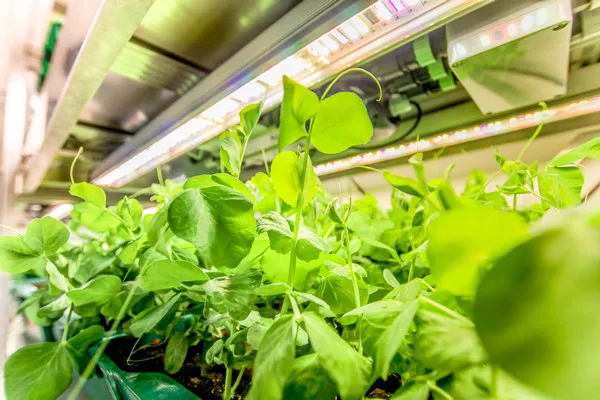“We were founded back in 2009, when there was only a handful of LED companies on the market, and the technology itself was still raising eyebrows,” says Nemanja Rodic, Marketing Director of Valoya. “In those  days, LED meant only piercing, purple light. We changed that by introducing the first white light spectra to the market.”
days, LED meant only piercing, purple light. We changed that by introducing the first white light spectra to the market.”
The global horticulture lighting market has been steadily growing for a long time and is projected to continue doing so. The largest part of its growth are LEDs, coming in as replacements for traditional techniques like HPS and fluorescent, which as LEDs become more available, will find it harder to compete. “Furthermore, the COVID-19 pandemic has increased a sense of urgency regarding food security around the globe, which will result in an increase in locally grown produce within indoor farms.”
The company was, from its early days, surprised by the positive response to the products. Scientists were the first to recognize the value of the LEDs, and universities and research institutions from around the world reached out. “That’s why there are so many academic publications with our LEDs. We quickly grew our product portfolio to include solutions for commercial horticulture as well, and we have sold to over 50 countries.”
Trends and developments
Recent years were marked with an exponential growth in the number of LED providers. "Some trade shows list as many as 80 different LED companies as exhibitors. Most of the technology presented is indistinguishable, white LED lighting, quite similar to office space illumination.” This means that technology has become commodified, and growers may face even more confusion when choosing.
“The development has progressed in our understanding of what we can do with LEDs. More plant trials have been conducted, and we have a better insight now into just how far we can push the plants in terms of phenotype or chemical composition, or amount of biomass that we desire as outcome. It’s about the photobiology expertise and the research behind it, nowadays.”
Nemanja expects that LEDs will continue to become more efficient, and the company will continue to accumulate knowledge on the plant response to light, resulting in even more efficient cultivation. This will be complemented with further sophistication of the LED offering, such as the company’s LightDNA line, which enables easy replication of sunlight spectra from any part of the world.
“On top of that, sensor and IoT usage, once it is mature enough to be commercialized, will add value to growers.” He thinks that the number of LED companies will reduce, both among young companies that joined the race in the past 5 years, as among those who were with the first few. “The market is big, but not big enough for 80 or more companies.”

Products
Valoya’s LEDs come with the photobiology expertise built through over 600 plant trials, on over 300 plant species/varieties. “Whatever variety a grower may be interested in growing, chances are we’ve conducted extensive tests on it, and can provide precise growth protocols at no charge.” This know-how is how the company ensures growers go from an idea to a marketable product in the most efficient way.
The BX series, versatile, high intensity LED bars, suitable for growth chambers and indoor farms, are popular. They come in different lengths, have IP67 rating, are dimmable and certified to all relevant standards and certificates. “This product illuminates various growth environments, from growth chambers of some of the world’s largest AG companies, to cannabis growers across North America and beyond.”
COVID-19
“Luckily, we have not been negatively affected by the implications of the COVID-19 outbreak. On the one hand, the remote working mode is not new for us, and on the other hand, most of our products are made here in Finland where we have a good component stock, so production was able to move on uninterrupted. This strange circumstance the world finds itself in, has pushed certain businesses to make decisions faster, so we have received orders from parts of the world concerned with food security, such as the Middle East.
"Our industry and the whole world are facing a challenge like none other in our lives. We have to proceed with our business unaffected as so many depend on what we do, day to day. We are part of supply chains that secure food we all eat, and we must not forget that as we move from bedroom to living room to sit in front of computers and deal with partners scattered around the globe, we're faced with the same circumstances. It’s good to remain patient and understanding with each other, as we are all in this together.”

Valoya was built on curiosity to explore what the possibilities of light may be. It seeks to help its customers by providing life giving light that makes food and medicine production more efficient. “Our mission in these troubling times is more relevant than ever, and we are aware of that and grateful that we get to do what we do.”
For more information:
Valoya
www.valoya.com
